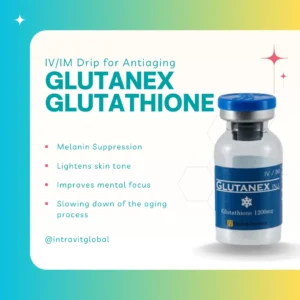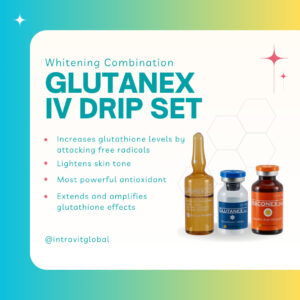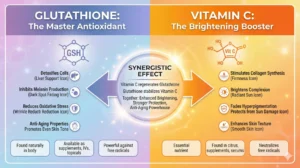Does Taurine Enhance Athletic Performance?
Introduction
In the world of sports supplements, one name that’s been gaining traction is taurine. If you’ve ever glanced at the back of an energy drink can or a pre-workout formula, you’ve likely seen taurine listed as a key ingredient. But what exactly is taurine, and more importantly, does it live up to the hype when it comes to boosting athletic performance?
Athletes and fitness enthusiasts are constantly looking for ways to improve their endurance, strength, and recovery. With taurine marketed as a powerhouse for all three, it’s natural to wonder: is this just another supplement trend, or is there real science backing its benefits?
In this article, we’ll break down the research, explore how taurine works in the body, and determine whether adding it to your fitness routine can truly give you an edge. Let’s dive in!
What is Taurine?
Taurine is a type of amino acid, but unlike many others, it doesn’t build proteins. Instead, it plays a crucial role in various metabolic processes and is found abundantly in the heart, brain, muscles, and eyes. It’s often called a “conditional” or “semi-essential” amino acid because while the body can produce some taurine on its own, certain conditions—like intense physical exertion—can deplete these levels, making dietary intake or supplementation important.
Natural sources of taurine include:
- Meat: Beef, chicken, and lamb
- Seafood: Fish, shellfish, and scallops
- Dairy: Milk, cheese, and yogurt
Interestingly, taurine is absent in most plant-based foods, meaning vegetarians and vegans might have lower taurine levels unless they use supplements.
How does taurine differ from other amino acids?
While essential amino acids like leucine or valine contribute directly to muscle protein synthesis, taurine works behind the scenes—helping regulate hydration, supporting nerve function, and protecting cells from oxidative damage. These functions are what make taurine particularly intriguing for athletes.
How Does Taurine Work in the Body?
So, how exactly does taurine pull its weight when it comes to athletic performance?
Muscle Function and Energy Metabolism:
Taurine enhances the way muscles contract and release energy. Studies show that it supports calcium signaling in muscle cells, crucial for both strength and endurance exercises. When muscles function more efficiently, you experience better performance and reduced fatigue.Antioxidant Properties:
Intense workouts produce free radicals—unstable molecules that cause oxidative stress and muscle damage. Taurine acts as an antioxidant, neutralizing these free radicals and protecting muscle cells from harm. This translates into faster recovery and less post-workout soreness.Hydration and Electrolyte Balance:
Taurine plays a role in maintaining proper fluid balance within cells. It regulates how water and minerals (like sodium and potassium) move in and out of cells, keeping muscles hydrated and preventing cramps during long or intense workouts.
All these functions work together to create a solid foundation for improved athletic performance. But does the research back this up? Let’s find out.
Taurine and Athletic Performance: What Science Says
Research on taurine and exercise has ramped up in recent years, with scientists exploring its effects on strength, endurance, and recovery.
What the studies show:
- Endurance: A 2013 study published in the journal Amino Acids found that athletes who took taurine before a run improved their time-trial performance without experiencing additional muscle fatigue.
- Strength: Another study observed that taurine supplementation increased power output and reduced muscle soreness in weightlifters, suggesting it may support both anaerobic and aerobic performance.
- Recovery: Research in Frontiers in Physiology indicated that taurine reduces exercise-induced muscle damage, helping athletes recover more quickly.
However, not all studies show dramatic results. Some research suggests taurine has only a minor impact on performance, with differences depending on dosage, timing, and the athlete’s baseline taurine levels.
The takeaway? While taurine appears promising, it’s not a magic bullet—it works best as part of a well-rounded training and nutrition plan.
Endurance and Stamina: Can Taurine Help You Go the Extra Mile?
One of taurine’s most hyped benefits is its potential to boost endurance. Whether you’re a long-distance runner, cyclist, or swimmer, taurine might just help you push past your usual limits.
How does taurine enhance endurance?
- Improved Oxygen Uptake: Taurine helps increase the efficiency of oxygen transport in the bloodstream, allowing muscles to work harder for longer without becoming fatigued.
- Enhanced Muscle Contraction: It supports calcium flow within muscle cells, ensuring smooth and powerful contractions—key for sustained performance during endurance events.
- Reduced Fatigue: Studies show taurine lowers blood lactate levels, delaying the “burn” and allowing you to keep going longer.
Real-world athletes have noticed these benefits, with many incorporating taurine into their pre-race routines. Some marathon runners report feeling more “dialed in,” with better focus and less muscle cramping during long runs.
Taurine and Muscle Strength: Is There a Connection?
While taurine is often praised for its role in endurance, its impact on muscle strength and power is another area of growing interest. For athletes focused on resistance training, weightlifting, or high-intensity interval training (HIIT), the question is: can taurine actually make you stronger?
How taurine supports muscle strength:
Enhanced Muscle Contractions:
Taurine regulates calcium flow within muscle cells. Since calcium is essential for muscle contraction, taurine indirectly boosts your ability to lift heavier weights and generate explosive power. Stronger, more efficient contractions mean you can push through more reps or lift with better control.Reduced Muscle Damage:
Strength training causes micro-tears in muscle fibers. Taurine’s antioxidant properties help combat the oxidative stress caused by intense lifting sessions. This means less muscle soreness (DOMS) and faster recovery between workouts.Increased Nitric Oxide Production:
Some studies suggest taurine may enhance nitric oxide (NO) levels, improving blood flow to muscles. Better circulation means more oxygen and nutrients reach muscle tissue during training, potentially boosting pump and endurance during weightlifting.
What does the science say?
- A study published in the Journal of Strength and Conditioning Research found that athletes taking taurine alongside branched-chain amino acids (BCAAs) experienced reduced muscle soreness and improved recovery after resistance training.
- Another study showed that taurine supplementation improved muscle force production in elite athletes, suggesting it could enhance power output during explosive exercises like squats or deadlifts.
Interestingly, many bodybuilders stack taurine with creatine—another well-known strength supplement. While creatine boosts energy by replenishing ATP stores, taurine complements it by reducing muscle fatigue and inflammation. Together, they create a one-two punch for strength gains.
Taurine for Recovery: Speeding Up Post-Workout Healing
Recovery is just as crucial as training itself. Without proper recovery, muscles don’t grow, and performance plateaus. Here’s where taurine shines—acting as a powerful recovery aid that helps athletes bounce back faster.
How taurine boosts recovery:
Fights Inflammation:
Intense workouts create inflammation as part of the muscle repair process. Taurine helps modulate the immune response, reducing excessive inflammation and preventing long-term muscle damage.Combats Oxidative Stress:
After a heavy lifting session or endurance workout, free radicals build up in the body. Taurine’s antioxidant properties neutralize these free radicals, reducing cellular damage and accelerating muscle repair.Minimizes Muscle Soreness:
Research shows that taurine lowers markers of muscle damage—like creatine kinase (CK) and lactate dehydrogenase (LDH)—after exercise. This translates to less next-day soreness, allowing you to train again sooner.
Scientific backing:
- A study in Frontiers in Physiology showed that participants who supplemented with taurine post-workout experienced lower inflammation markers and reported less muscle soreness compared to the placebo group.
- Another trial found that taurine taken after resistance training reduced oxidative stress and muscle tissue damage, promoting faster healing.
Pro tip: For optimal recovery, many athletes pair taurine with protein and electrolytes—creating a post-workout cocktail that replenishes nutrients, repairs muscle, and rehydrates the body.
The Role of Taurine in Hydration and Electrolyte Balance
Proper hydration isn’t just about drinking water—it’s about maintaining the right balance of electrolytes, which taurine plays a direct role in managing. For athletes, staying hydrated means better performance, quicker recovery, and fewer cramps.
Taurine’s role in hydration:
Regulates Fluid Balance:
Taurine helps control how water moves in and out of cells, ensuring muscles remain hydrated. This fluid balance is critical for muscle function, especially during high-intensity training or long-distance endurance events.Supports Electrolyte Homeostasis:
When you sweat, you lose not only water but also electrolytes like sodium, potassium, and magnesium. Taurine helps stabilize these electrolytes, reducing the risk of muscle cramps and dehydration.Protects Against Heat Stress:
Research suggests taurine may lower body temperature during exercise, reducing heat stress and keeping athletes performing at their best in hot climates.
Scientific evidence:
A study in Amino Acids showed that taurine supplementation improved fluid balance and prevented dehydration during prolonged exercise, especially in hot weather. Athletes reported fewer cramps and less fatigue during long training sessions.
How to use taurine for hydration:
- Add taurine to your intra-workout drink, combining it with electrolytes like magnesium and potassium.
- If training in hot weather, increase taurine intake slightly to help combat heat stress.
By keeping your cells properly hydrated, taurine ensures that your muscles stay strong, coordinated, and cramp-free throughout your workout.
Taurine and Mental Focus: Boosting Brain Function During Exercise
Athletic performance isn’t just about physical strength—it’s also about mental sharpness. Whether you’re an athlete strategizing a game plan or a runner trying to push through the last mile, focus and alertness are vital. Taurine doesn’t just work on your muscles—it also impacts your brain.
How taurine benefits mental performance:
Improves Reaction Time:
Taurine interacts with neurotransmitters like GABA and glycine, promoting faster neural communication. This results in quicker reflexes and better reaction time during high-speed sports like basketball or soccer.Reduces Mental Fatigue:
Long workouts can drain both the body and the brain. Studies show taurine reduces mental fatigue, keeping your mind sharp and focused, even during prolonged physical exertion.Enhances Mood and Motivation:
Taurine has a calming effect on the brain, reducing anxiety while boosting motivation and mood. This is especially helpful for athletes struggling with pre-competition nerves or workout burnout.
Taurine and caffeine: A perfect pair?
Interestingly, taurine is often combined with caffeine in energy drinks. While caffeine boosts alertness and energy, taurine counters the jittery side effects—resulting in clean, focused energy without the crash. This combination is why many pre-workout supplements and energy drinks feature both ingredients.
Research highlights:
- A study in Psychopharmacology showed that taurine supplementation improved reaction time and cognitive performance in athletes, especially during mentally demanding tasks.
- Another study found that taurine combined with caffeine enhanced focus without causing anxiety or overstimulation.
Best way to use taurine for mental focus:
- Take taurine 30 minutes before a workout, either alone or combined with a small dose of caffeine.
- If you’re in a mentally demanding sport (like martial arts or competitive gaming), taurine can help sharpen reflexes and focus under pressure.
Taurine Dosage for Athletes: How Much is Enough?
One of the most common questions athletes ask about taurine is: how much should I take to see real performance benefits? Like any supplement, the dosage plays a crucial role in determining whether you experience positive effects—or just end up wasting money.
Recommended taurine dosages for athletic performance:
- Endurance and stamina: Studies suggest doses of 1,000–3,000 mg (1–3 g) taken 30–60 minutes before exercise may improve time-to-exhaustion and reduce muscle fatigue.
- Muscle strength and recovery: Research shows that doses of 2,000–3,000 mg (2–3 g) post-workout can speed up muscle recovery and reduce soreness.
- Cognitive function and focus: To enhance mental focus, 500–1,000 mg combined with caffeine seems to provide a smooth boost in alertness without the jitters.
When should you take taurine?
- Pre-workout: To enhance endurance and stamina, take taurine about 30–60 minutes before exercising.
- Intra-workout: Adding taurine to an electrolyte drink can prevent cramping and dehydration during long sessions.
- Post-workout: For faster recovery, pair taurine with protein and carbs immediately after training.
Can you take taurine every day?
Yes! Most research shows that daily taurine supplementation—even up to 6,000 mg (6 g)—is safe for healthy adults. However, most athletes stick to the 1–3 g range for consistent results without overdoing it.
Pro tip: Start with a lower dose (around 1 g) and gradually increase it based on your goals and how your body responds. Always check with a healthcare provider if you have underlying health conditions or are taking medications.
Possible Side Effects of Taurine Supplementation
While taurine is generally safe for most people, it’s essential to know about potential side effects—especially if you’re taking it alongside other supplements.
Common side effects:
- Digestive issues: High doses (above 5 g) may cause mild stomach upset, including bloating or diarrhea.
- Low blood pressure: Taurine may lower blood pressure, so be cautious if you’re on medications for hypertension.
- Sleepiness: Since taurine interacts with GABA receptors in the brain, some people experience mild drowsiness—though this is rare at athletic doses.
Can you overdose on taurine?
There’s no evidence that taurine is toxic, even at high doses. Studies show that daily doses up to 6 g are well-tolerated. However, mega-dosing (10 g or more) isn’t necessary for performance benefits and may increase the risk of stomach discomfort.
Interactions with other supplements:
- Caffeine: Taurine balances out caffeine’s stimulant effects, providing “calm focus” instead of jitters.
- Creatine: Works synergistically with taurine to boost strength, recovery, and hydration.
- Electrolytes: Combining taurine with sodium, potassium, and magnesium enhances hydration during long workouts.
Bottom line: Taurine is safe, but like any supplement, it works best when used strategically. Stick to the proven 1–3 g range, and you’ll avoid most side effects.
Taurine in Energy Drinks: Help or Hype?
Energy drinks like Red Bull, Monster, and Rockstar often highlight taurine as a key ingredient—but are these drinks actually a good way to get your taurine fix?
Why is taurine in energy drinks?
Taurine is included for its cognitive benefits. It helps:
- Reduce anxiety caused by high caffeine levels.
- Improve mental focus by balancing neurotransmitters.
- Prevent muscle cramps during physical exertion.
How much taurine is in energy drinks?
- Red Bull: 1,000 mg per 8.4 oz can
- Monster Energy: 2,000 mg per 16 oz can
- Rockstar: 2,000 mg per 16 oz can
The problem:
While the taurine content is decent, energy drinks often come loaded with:
- Excessive caffeine (up to 300 mg per can)
- Sugar (up to 50 g per serving)
- Artificial additives and sweeteners
This creates a rollercoaster effect: a quick energy spike, followed by a crash.
Are energy drinks an effective way to take taurine?
Not really. While they do provide taurine, the high sugar and caffeine content often overshadow any athletic benefits. Plus, you can easily get the same (or better) taurine dose from a simple capsule or powder—without the extra junk.
Better alternatives:
- Pre-workout supplements: Many quality pre-workouts include taurine without unnecessary sugar or artificial additives.
- Standalone taurine powder: Mix 1–3 g into your protein shake or electrolyte drink.
- DIY energy drinks: Combine taurine, caffeine, and electrolytes in water for a clean, effective boost.
Pro tip: If you still enjoy energy drinks, opt for sugar-free versions—but don’t rely on them as your primary taurine source. Supplements offer more control over dosage and fewer unnecessary ingredients.
Natural Sources of Taurine: Can You Get Enough From Food?
If you’re not keen on supplements, you might wonder: can I get enough taurine from my diet alone? Let’s break down the natural sources of taurine and how they compare to supplementation.
Top taurine-rich foods:
- Meat: Beef (50–70 mg per 100 g), chicken (10–30 mg per 100 g), lamb (47 mg per 100 g)
- Seafood: Oysters (200–300 mg per 100 g), scallops (827 mg per 100 g), tuna (40–70 mg per 100 g)
- Dairy: Milk (6 mg per 100 ml), cheese (35 mg per 100 g), yogurt (40 mg per 100 g)
How much taurine do you actually get from food?
Even the most taurine-rich foods—like scallops and oysters—provide less than 1 g per serving. Compare this to the 1–3 g needed for athletic benefits, and it’s clear that diet alone may not be enough—especially for athletes with higher demands.
What about plant-based diets?
Unfortunately, taurine is almost entirely absent from plant foods. This means vegans and vegetarians may have lower taurine levels, making supplementation even more important if they want to support athletic performance.
Should you rely on food or supplements?
- If you eat a high-protein, meat-heavy diet: You may get some taurine naturally, but likely not enough for performance benefits.
- If you’re vegan or vegetarian: Taurine supplementation is almost essential if you want to match the levels shown to boost athletic performance.
Pro tip: Think of taurine-rich foods as a “baseline” source—good for general health, but not enough for performance optimization. Supplements help bridge the gap and ensure you hit those higher doses needed for athletic gains.
Should You Add Taurine to Your Fitness Routine?
By now, you’re probably wondering: should I actually start taking taurine? Let’s break it down.
Consider adding taurine if:
- You’re an endurance athlete (runner, cyclist, swimmer) looking to boost stamina.
- You lift weights and want to increase strength and reduce soreness.
- You struggle with muscle cramps during long workouts.
- You want to enhance mental focus and reaction time during training or competitions.
- You’re on a plant-based diet and need to replace taurine typically found in meat.
How to start:
- Dosage: Begin with 1 g per day and gradually increase to 2–3 g based on your goals.
- Timing: Take taurine pre-workout for energy, intra-workout for hydration, and post-workout for recovery.
- Stacking: Pair taurine with creatine for strength, BCAAs for recovery, or caffeine for focus.
Ultimately, taurine isn’t a magic bullet—but combined with smart training, proper nutrition, and the right supplements, it can be a powerful ally in your athletic journey.
Conclusion
Taurine is much more than a buzzword on energy drink cans—it’s a science-backed amino acid with real potential to enhance athletic performance. From boosting endurance and strength to accelerating recovery and sharpening mental focus, taurine offers a wide range of benefits for athletes.
While diet alone may not provide enough taurine to hit optimal levels, smart supplementation can bridge the gap. By following proven dosages and combining taurine with other key nutrients, you can unlock its full potential and take your performance to the next level.
-
Hot-Sale
Asconex Vitamin C (Ascorbic Acid) IV/IM Drip for Antiaging, Melanin Suppression, Antioxidant and Skin Brightness Benefits
£38.00 – £70.00Price range: £38.00 through £70.00 Select options This product has multiple variants. The options may be chosen on the product page -
Hot-Sale
Glutanex Glutathione 1200mg IV Drip for Antiaging, Melanin Suppression, Antioxidant Skin Brightness Benefits
£65.00 – £120.00Price range: £65.00 through £120.00 Select options This product has multiple variants. The options may be chosen on the product page -
Hot-Sale
Glutanex IV Drip Set, Whitening Combination Kit with Glutathione, Vitamin C, Lipoic Acid for Antiaging, Skin Brightness Benefits
£30.00 – £250.00Price range: £30.00 through £250.00 Select options This product has multiple variants. The options may be chosen on the product page
Checkout our Facebook Page and leave your review about our Health Care Products.







